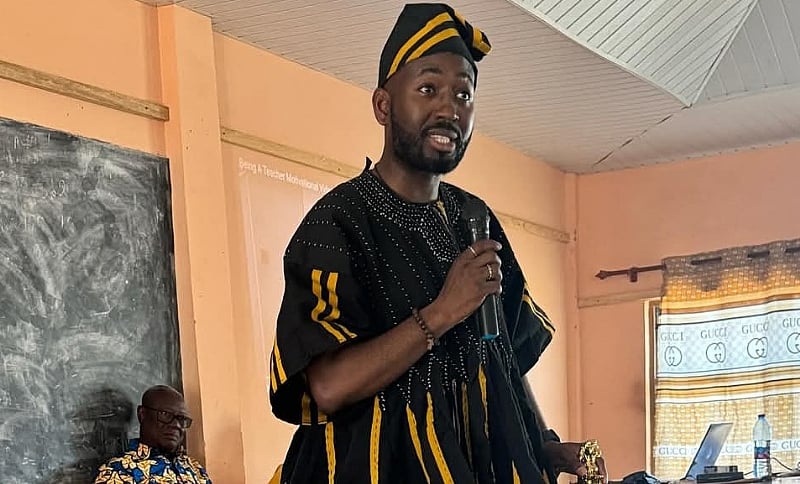The imposition of a 10% tariff on all imports into the United States by the Trump administration in April 2024 sent shockwaves through the global economy, with Ghana experiencing significant repercussions despite its relatively small direct export volume to the US. While Ghanaian exports to the US represent only 3.5% of its total trade, the tariffs disproportionately impacted key sectors previously shielded by the African Growth and Opportunity Act (AGOA), such as cocoa, textiles, cashews, shea butter, and processed foods. The tariffs effectively neutralized the benefits of AGOA, stripping Ghanaian exporters of their duty-free access to the US market and jeopardizing thousands of jobs dependent on these industries. Dr. Sangu Delle, a prominent Ghanaian entrepreneur and policy advocate, characterized the situation as a critical juncture, a wake-up call for Ghana to reassess its economic dependencies and chart a new, self-determined course.
Under AGOA, Ghana had witnessed a flourishing of value-added exports, fostering local job creation and bolstering industrial capacity. The introduction of the tariffs, coupled with the impending expiration of AGOA in September 2025, has injected significant uncertainty into the future of these industries. Factories face cancelled orders from US buyers, while farmer cooperatives and small-scale exporters grapple with the prospect of being priced out of the international market. Even Ghana’s primary export to the US, crude oil, which was initially exempt from the direct tariffs, suffered indirectly from the ensuing global market instability. The subsequent decline in oil prices threatened to erode public revenues and destabilize foreign exchange, further compounding Ghana’s economic challenges. This confluence of events underscored the precariousness of relying heavily on external markets and highlighted the urgent need for a more resilient and diversified economic strategy.
Delle argues that this crisis represents “the end of illusions” regarding economic dependence and calls for a fundamental shift towards self-reliance. He proposes a five-pronged strategy to navigate this challenging landscape and secure Ghana’s economic future. The first element involves strengthening intra-African trade by leveraging the African Continental Free Trade Area (AfCFTA) to absorb the lost US demand. This regional focus aims to reduce reliance on external markets and foster greater economic integration within the African continent. Secondly, Delle advocates for accelerated industrialization, emphasizing a transition from exporting raw materials to producing finished goods such as chocolate, refined oil, and branded garments. This value-addition strategy aims to increase the profitability of Ghanaian exports and enhance the country’s competitiveness in global markets.
The third component of Delle’s proposed strategy centers on maintaining macroeconomic stability, specifically protecting the value of the Ghanaian cedi and strengthening financial buffers. This involves implementing sound fiscal and monetary policies to mitigate the impact of external shocks and maintain investor confidence. The fourth element calls for proactive diplomatic engagement with the US, seeking tariff exemptions for Ghanaian products and negotiating a renewed trade deal that safeguards Ghana’s access to the American market. This diplomatic effort aims to minimize the damage caused by the current tariffs and secure more favorable trade terms for the future. Finally, Delle emphasizes the importance of supporting vulnerable sectors affected by the tariffs through targeted interventions such as tax relief, export incentives, and retraining programs for displaced workers and businesses. These support measures aim to cushion the blow of the tariffs, facilitate adjustments to the new trade landscape, and enable affected industries to regain their footing.
Delle’s proposed strategy represents a comprehensive approach to addressing the challenges posed by the US tariffs and the impending expiration of AGOA. It emphasizes the need for both short-term mitigation measures and long-term structural reforms to build a more resilient and self-sufficient economy. By diversifying export markets, enhancing value-addition through industrialization, maintaining macroeconomic stability, engaging diplomatically, and supporting vulnerable sectors, Ghana can navigate the current crisis and emerge stronger in the long run. Delle believes that this moment presents a transformative opportunity for Ghana, a chance to reimagine its economic trajectory and build a more sustainable and prosperous future. He calls for a unified and ambitious response, urging the country to seize this setback as a catalyst for long-term economic renewal.
The current situation demands decisive action from Ghana, not driven by fear, but fueled by a determination to shape its own trade destiny. By embracing Delle’s proposed strategy and fostering a spirit of unity and resilience, Ghana can overcome the challenges posed by the US tariffs and forge a path towards greater economic independence and prosperity. This involves a fundamental shift in mindset, moving away from dependence on external markets and embracing a more proactive and self-determined approach to economic development. The implementation of this strategy requires strong leadership, effective policy coordination, and the active participation of all stakeholders, including the government, the private sector, and civil society. By working together, Ghana can transform this crisis into an opportunity to build a more robust and sustainable economic future.


